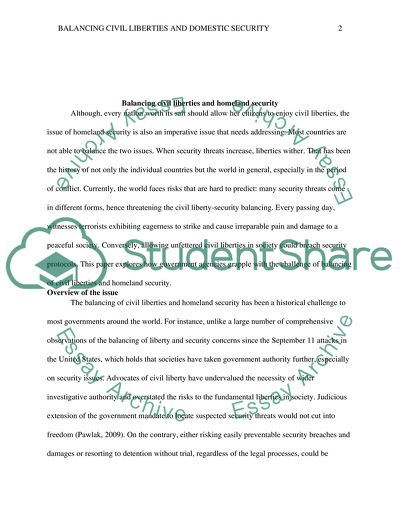Cite this document
(Balancing Civil Liberties and Domestic Security Research Paper, n.d.)
Balancing Civil Liberties and Domestic Security Research Paper. Retrieved from https://studentshare.org/social-science/1768386-balancing-civil-liberties-and-domestic-security
Balancing Civil Liberties and Domestic Security Research Paper. Retrieved from https://studentshare.org/social-science/1768386-balancing-civil-liberties-and-domestic-security
(Balancing Civil Liberties and Domestic Security Research Paper)
Balancing Civil Liberties and Domestic Security Research Paper. https://studentshare.org/social-science/1768386-balancing-civil-liberties-and-domestic-security.
Balancing Civil Liberties and Domestic Security Research Paper. https://studentshare.org/social-science/1768386-balancing-civil-liberties-and-domestic-security.
“Balancing Civil Liberties and Domestic Security Research Paper”, n.d. https://studentshare.org/social-science/1768386-balancing-civil-liberties-and-domestic-security.


